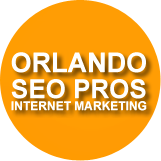1. What is the difference between Organic SEO and Local SEO?
- Organic SEO is location neutral. It’s ideal for websites that generate revenue exclusively online or are just looking to generate awareness through a wide audience. If you’re running a national campaign, or an e-commerce campaign, this is the perfect methodology for you.
- Local SEO targets local search specifically. That means that your audience is within a few miles from your business and that your online presence is meant to drive foot traffic to an actual establishment. This is done through several methods including using geo-centric keywords, producing locally relevant content, building citations on local niches and directories, and tying up with websites in the same area.
2. Do you guarantee the rankings?
- Like all the reputable SEO Companies, organic rankings are primarily influenced by the various Search Algorithms and are impossible to completely manipulate or predict. Our methodology works by leveraging as many of the proven search metrics to your advantage in order to make you r business the most relevant result for a specific search query or Keyword. We aim to provide the best solutions to all our clients thus we want our clients to speak and consult with our Project Managers to get a bigger picture on when you can expect the results that you want and how you can get it.
3. How soon do I rank?
- As a general rule, we recommend a six month period to see positive results in a campaign. How quickly you rank depends on over 200 metrics and how many are inherently present in your site from the time the project starts.
- No 6-month period will pass where no positive results are met; however, significant traffic increases are dependent on your location, keywords, site’s authority and age, and other factors.
- Inherently powerful websites can see results as quickly as 60 days. Entirely new websites may take up to 1 year to see a significant number of terms appear in the first page and the top 3 positions.
4. Do you cover other CMS other than WordPress?
- We are able to implement in almost any PHP based platform, technology, or anything that runs on open source technology. We are not able to implement on Microsoft technology or Microsoft powered websites because of technology incompatibility between those sites and our servers. Due to the training and experience of our staff and WordPress’ ease of use, we offer implementation of our recommendations on WordPress websites as an added value.
- Charges will apply when the optimization of your site requires development changes such as new page building outside of the WordPress CMS capability, Custom post page types in WordPress, implementation in native PHP, HTML, Drupal, Magento, Joomla and other platforms. To know if we shoulder the cost of implementation, please consult your Project Manager.
5. What is the difference of an on-page and off-page optimization?
- On-Page optimization is working on elements within a website that make it favorable in the eyes of a search engine such as Google. This includes providing structure for the data on your website, optimizing the content to be more Google-readable, aligning all the content of the site to be more focused on certain topics you want to rank, and inserting mark-ups and snippets that would be displayed on search engine results once your website appears.
- Off-Page optimization involves SEO activities that do not involve working with the actual website itself.
- At its core is link building which is done through different methods. This includes placing articles in relevant publications, reaching out to relevant blogs to carry articles, or building citations in powerful websites such as Yelp that points back to your site, and other activities that help increase and improve your business’ digital footprint.
6. How many geo locations does our Local SEO packages target?
- Each Local SEO Package targets one location. If your business has multiple locations, you would need to buy a package for each one, unless your geo-targets all fall within a 5 mile radius.
7. What contributes to Local SEO?
- On-Page semantic mark-ups and Google Map API integration also help the search engines understand that a website is the virtual representation of a physical business in the location indicated in the map API and marked up in the schema address.
8. How are citations important for Local SEO?
- Google considers the number of citations and where they are in their ranking factor. Nonetheless, the critical part of citations is not their number but the consistency of citations. Each citation must be similar; else Google may display different data for your local business.
9. How do I place my business in the Google Map pack?
- Aside from the Organic and specific Local SEO factors, businesses are displayed in the Google Map pack based on the location of the business and the searcher, data in Google Maps and Google My Business and number of citations pointing to the business and its location among other things.
